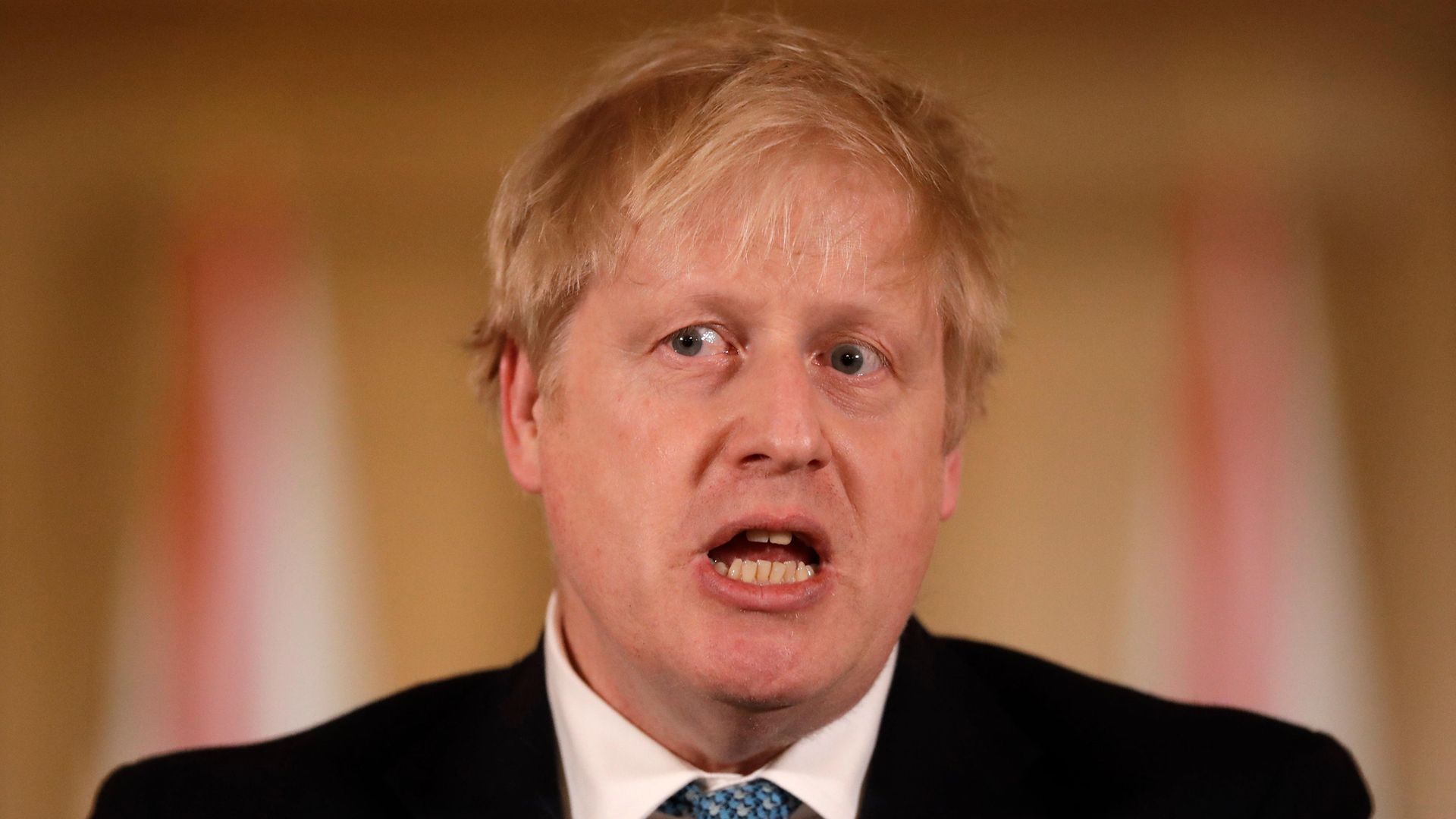
Will Self searches for meaning in the prime minister’s festive messages.
Hanukkah ends on Friday December 18 this year – and I wonder whether our beloved leader will be delivering another filmed address to the British Jewish community. Last year’s message was both utterly bizarre and politically tendentious; and given that we’ve seen a year in which the Labour Party has been severely censored for its failure to deal with systemic anti-Semitism, it’s worthwhile looking back in amazement at Johnson’s weird attempt to simultaneously cast himself and the Tory Brexiteers as philo-Semites, while making of Britain itself a strange sort of promised land.
Johnson kicked off first with a faintly risible reference to what he – or his then spin doctor – must have imagined to be the quintessence of British Jewishness: he had the opportunity to bake latkes and doughnuts in Golders Green during the last election campaign. Moreover, when it comes to Hanukkah, what’s not to like? For, Johnson thrilled us: this is a week-long festival during which the children get presents every single day! So, there, in two hectic sentences, we had it: to be a British Jew is to participate in a superior sort of British Bake-Off, plus practicing rampant consumerism.
Next, in typical blustering, pseudo-erudite style, Johnson reminded us of the significance of Hanukkah: the Maccabees, led by Judas, rose up in revolt against the Seleucid Syrian King, Antiochus, and restored Jewish worship to the temple at Jerusalem. The Miracle of the oil – which Johnson referred to reverently – should be seen not simply as a historical reference to the striking down of the Hellenistic idols introduced by the Syrian invaders of Judea 2,000 years ago; but as a contemporary light shining forth against the “darkness of resurgent anti-Semitism”.
With these resonantly partisan words we cut away from Our Leader’s own distinctly rubious features to an image of the menorah – the eight-branched candelabra – placed in the window of what we must assume to be a typical British Jewish household. And, as Johnson continued to speak of loathsome anti-Semites “crawling from under their rocks” (as if all metaphors henceforth had to be cast in a Biblical register), the camera began to zoom in. At which point those of us of a certain age couldn’t help mentally chorusing: “What’s through the Jews’ window today then, children?” And the answer was: a Christmas tree.
What could this syncretism: the superimposition of menorah-on-tree have meant? Especially given you could see that the Christmas tree in the Jewish-British domestic interior was surmounted by a cross – or at least a cruciform angel: it’s never altogether in focus, so it was hard to tell which. Nevertheless, it was clear that the conclusion to be reached – as Johnson continued to descant on the embattled yet essential nature of British Jewry – was that minority and majority exist in some sort of synecdochal relationship to one another, such that: “Britain would not be Britain without its Jewish community.” A conclusion at once rousing – and suggestive of another embattled minority that is seeking to rid itself of the iconography and values of a hated invader.
Yes, you guessed it: Johnson’s Hanukkah message for 2019 was really a call to identify Britons with Jews, and hence rouse one and all to repel the hated SelEUcid invaders. And if you think this is a tendentious reading, I ask you to consider by way of contrast the prime minister’s Eid message for 2020. Granted, he was addressing the British Muslim community back in May, during the peak of the pandemic’s initial wave – rather than a few days after a resounding general election victory, when there was no such crisis in sight – but nonetheless, the differences in approach are telling. Whereas the Jews were implicitly identified as being more British than the British, the Muslims remained othered: their identity constituted not by heimlich baking – but by not baking: Johnson noted that British Muslims were unable to endure the privations of Ramadan together, and nor could they been undertake the Hajj. He thanked them not for being an essential component of British identity – but for maintaining social distance, and working on the frontline of the NHS.
There’s more: British Muslims – unlike Jews – needed to be thanked for working in other key roles, such as transport and retail, thereby personifying the Islamic values of duty and self-sacrifice. Johnson “urges” them to “keep up the excellent work” – a component of which is, apparently, “limiting the number of friends and family in your homes”, as well as “engaging with the test-and-trace system”. This at once hortatory and defamatory injunction – which simultaneously singles out British Muslims as exemplary when it comes to “sacrifice”, as well as incontinent when it comes to propinquity, then ended with the typical reduction of cultural identity in early 21st century to yet another foodie-jus: 2020’s Eid-el-Adha may have been terribly disrupted, but nonetheless the prime minister sincerely hoped that you “get some incredibly good things to eat”.
So, there it is: you may be British Jews or British Muslims, the important thing, as ever, was that you honour – nay, reverence! – your stomachs. And in the same spirit I’d like to wish all British Christians a very piquant and very white sauce to go with your turkey this Christmas: the last before we all reach the land where milk and honey are much more expensive due to the imposition of import taxes.










